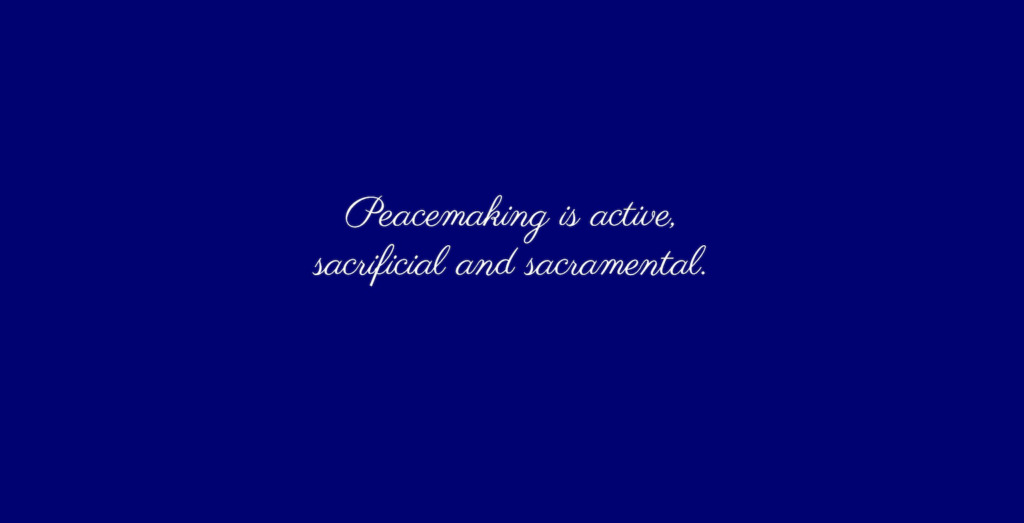“If you want peace, work for justice,” Pope Paul VI said in 1972 in his World Day of Peace message.
To be a sower of peace means to be a sower of seeds you may never reap. To be a sower of peace is to be a sower of hope, and in that lies a radical power that can change hearts and minds and shape society.
We are all called to be peacemakers in our various vocations and seasons of life.
What is a peacemaker? A peacemaker is a reconciler or a bridge builder with a deep and true understanding of who his or her neighbor is, and out of that understanding comes the ability to not only love that neighbor, but work to make sure the world is a reflection of that love.
Peacemakers seek to reconcile groups that might be at odds with one another. The pursuit of justice must also be included in the conversation of what makes a peacemaker.
A peacemaker understands his or her own dignity as an individual. Through encounter and out of love for neighbor, a peacemaker demands that the world recognize the inherent dignity of others and provide an environment for them to flourish.
As Pope Paul VI said during his 1972 World Day of Peace message, “A peace that is not the result of true respect for man is not true peace. And what do we call this sincere feeling for man? We call it justice.” He went on to say that we all have a duty to peace and to work actively for justice:
“Every man today knows he is a person; and he feels he is a person: that is, an inviolable being, equal to others, free and responsible – let us use the term: a sacred being.
“Since a different and better perception – that is, one which is fuller and more demanding – of the inward and outward flow of his personality, in other words, of his twofold moral movement of rights and duties, fills the consciousness of man, it is a dynamic justice, and no longer a static justice that is born of this heart.”
How can one be a peacemaker? Peacemaking is active, sacrificial and sacramental. In all of the beatitudes, there is no scenario that provides a guarantee for earthly comfort, but rather a heavenly reward.
Often, we stop at passive empathy or acts of charity in our mission to fully love our neighbor; we stop just short of discomfort. Pastor and speaker Eugene Cho writes, “We can read about justice, sing about justice and even ‘work’ for justice, but it’s an entirely different thing to live justly.”
To live justly, to be a peacemaker, means to also be a disruptor. In my work as a community organizer, I have had the honor of working alongside peacemakers and justice sowers in my community.
The foundation of community organizing is relational in nature. One-on-one meetings and listening sessions are where we grow deeper encounters with often marginalized members of our community. The difference between charity and justice has always been those relational meetings.
One such example was when I delivered welcome cards to Syrian refugees in our region. Through the help of an interpreter, I was able to learn about their six-year journey to arrive in Maryland. I felt the sadness, saw the tears and experienced the thankfulness in those conversations.
I continue to share encounters like this because stories have power. They change policies and remove biases. Think of the stories of healing and how they shaped hearts of communities in the Gospels.
Peacemakers are reconcilers. Encounters are the means of reconciliation and justice. Peacemakers are present in addiction support groups, anti-racism discussions, mental health conversations and other inclusive discussions. Encounters lie outside our comfort zone.
I invite you to find a way to move beyond charity into the uncomfortable work for justice. You will experience a peace that goes beyond understanding.
– – –
Ogechi Akalegbere is a Nigerian American who is a Christian service coordinator, public speaker, competitive powerlifter and fitness instructor. She hosts the podcast “Tell Me, If You Can,” serves on the board of Catholics United for Black Lives and is the 2021 winner of the Cardinal Bernardin New Leadership Award from the Catholic Campaign for Human Development.

